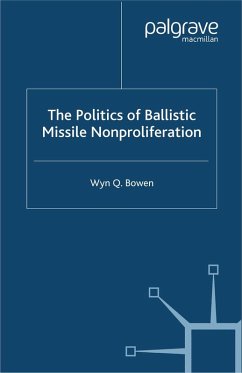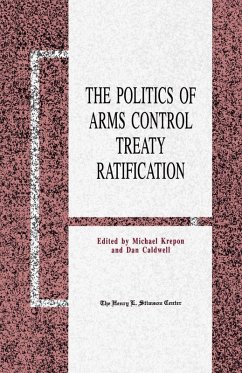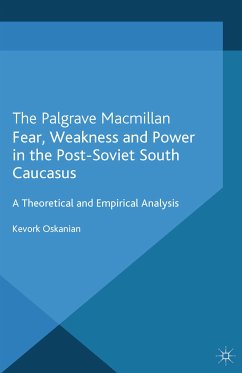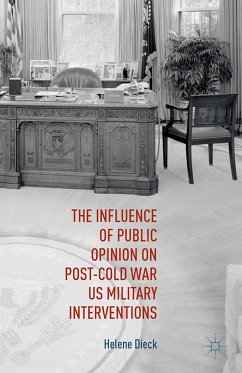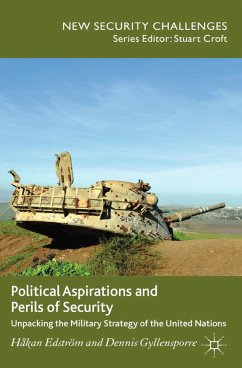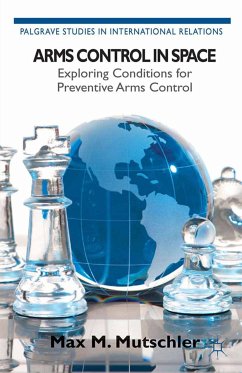
Arms Control in Space (eBook, PDF)
Exploring Conditions for Preventive Arms Control
Versandkostenfrei!
Sofort per Download lieferbar
40,95 €
inkl. MwSt.
Weitere Ausgaben:

PAYBACK Punkte
20 °P sammeln!
This book puts the widely-held view that 'arms control in space is not possible' to the test and aims to explore how, and under what conditions, arms control could become a reality. Drawing upon international regimes and IR theory, Mutschler examines the success of space weapons and anti-ballistic missiles.
Dieser Download kann aus rechtlichen Gründen nur mit Rechnungsadresse in A, B, BG, CY, CZ, D, DK, EW, E, FIN, F, GR, HR, H, IRL, I, LT, L, LR, M, NL, PL, P, R, S, SLO, SK ausgeliefert werden.



